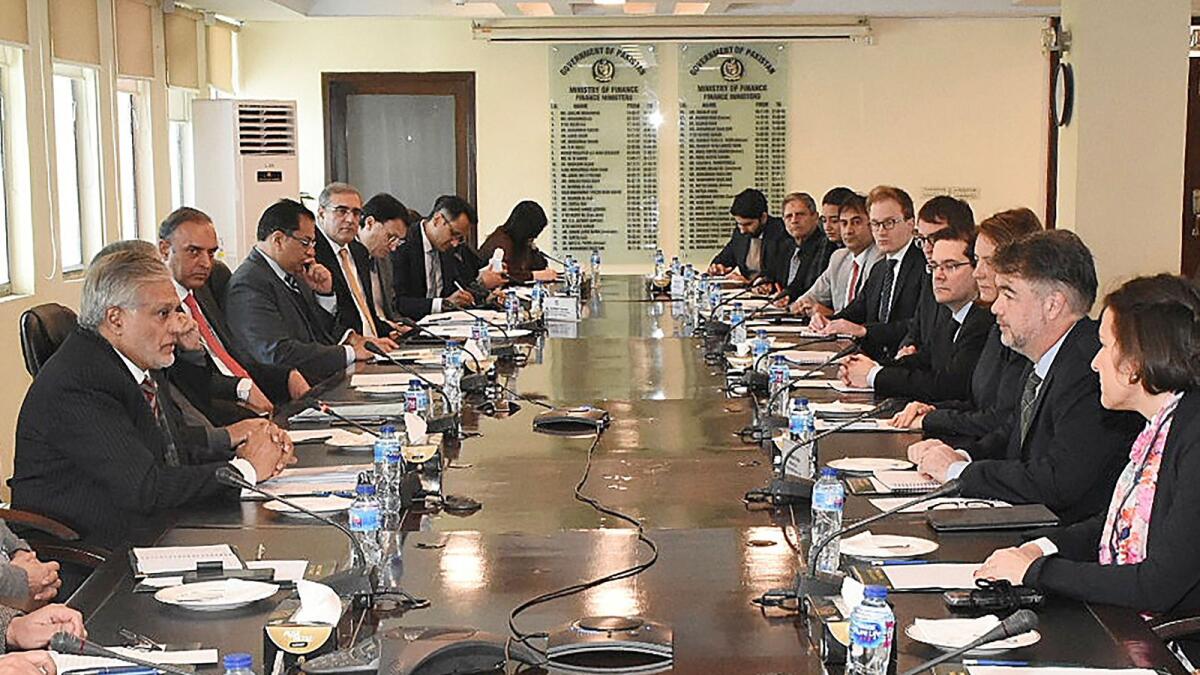
.
An IMF delegation on Tuesday held talks with Pakistan’s Finance Minister Ishaq Dar and other officials on the cash-strapped country’s economic policies and the reforms in key sectors — an essential requisite for Islamabad to complete the much-anticipated ninth review of the $7 billion bailout programme.
Pakistan entered a $6 billion International Monetary Fund (IMF) programme during Imran Khan’s government in 2019, which was increased to $7 billion last year.
The programme’s ninth review is currently pending with talks being held between IMF officials and the government for the release of $1.18 billion.
But the IMF suspended disbursements in November last year due to Pakistan’s failure to make more progress on fiscal consolidation amidst the political turmoil in the country.
A high-level delegation led by the IMF Mission Chief Nathan Porter met Finance Minister Dar and other officials at the Finance Division here, according to The Dawn newspaper.
A press release issued by the ministry after the meeting said Dar briefed the delegation about the government’s fiscal and economic reforms in several key sectors, including energy and measures to bridge the fiscal gap and stabilise the exchange rate. Dar informed the IMF mission that reforms were being introduced in the power sector and a “high-level committee has been formed for devising modalities to offset the menace of circular debt in the gas sector”, the report said.
The finance minister assured IMF officials that Pakistan would complete the ongoing programme, and extended support to the mission in working together to reach an agreement to complete the ninth review under the Extended Fund Facility (EFF), the report said, quoting the press release.
IMF Mission chief expressed confidence that Pakistan would fulfil the requirements for completing the review, it added.
Facing an acute balance of payments crisis, Pakistan is desperate to secure much-needed external financing, with its foreign exchange reserves plummeting to $3.68 billion, barely enough to sustain only three weeks of imports.
On Sunday, Pakistan raised the prices of petrol and diesel by Rs35 each, giving another jolt to the country’s inflation-stricken people.
After the hike, the price of petrol was set at Rs249.80 per litre, high-speed diesel at Rs262.80, kerosene oil at Rs189.83, and light diesel oil at Rs187 per litre. Pakistan’s currency depreciated against the US dollar on Tuesday to close at Rs267.89.
